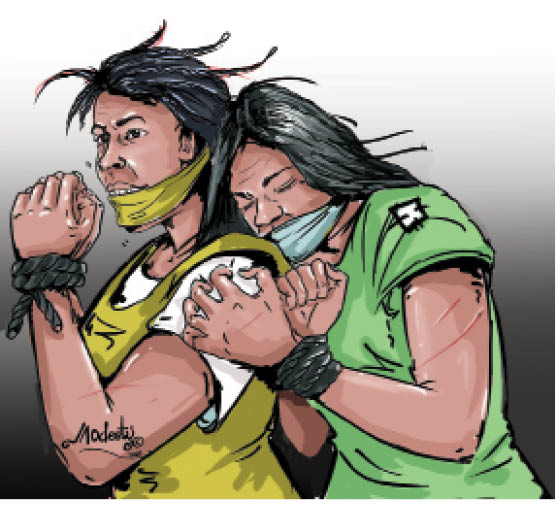Despite significant efforts to curtail human trafficking in Nigeria through the National Agency for the Control of Trafficking in Persons (NAPTIP), the inhumanity still persists.
The efforts of the federal government in fighting the scourge of human trafficking were lauded by the American government in June 2019 when the Trafficking in Persons (TIP) Report indicated that Nigeria was upgraded to Tier 2 due to significant and increasing efforts to combat human trafficking during the reporting period.
But the Director General, NAPTIP, Julie Okah-Donli, received the US report with mixed feeling when she disclosed that she expected Nigeria to be upgraded to Tier 1 because the present administration has demonstrated the desired commitment and political will to combat human trafficking in the country.
“In the last one year, we have doubled our prosecution and number of convictions and revamped our strategies aimed at combating human trafficking through massive public enlightenment and awareness creation campaigns, advocacy as well as other preventive measures,’’ she said.
But despite the efforts, it has been discovered that the problem continues to linger with a recent video of 23-year-old Omolola Ajayi, a single mother who was trafficked to Lebanon that went viral last week. The viral video is evidence that Nigeria still has a lot to put in place in fighting this dastardly act.
The chairman, Nigerians in Diaspora Commission (NiDCOM), Mrs Abike Dabiri-Erewa, in her reaction said, incidences of human trafficking would continue to be a problem until individuals and other facilitators are brought to book.
She made the remarks in reaction to the plight of Omolola while hailing the Nigerian Embassy in Lebanon for acting with dispatch in rescuing her. “We in the diaspora commission, whenever we have a distress call, we try to do what we can. But the matter has to be tackled from the roots; traffickers need to be known, they need to be arrested but unfortunately it is getting worse by the day with young girls whose lives are virtually being destroyed.”
Research revealed that over 55 per cent of victims of human trafficking are women and children as they are trafficked more often than men.
It is difficult to say how many women and girls are trafficked from, into, and within Nigeria, as there is no reliable data. The country is routinely listed as one of those with large number of trafficked victims overseas, particularly in Europe. The victims were identified in more than 34 countries in 2018, according to the US State Department Office to Monitor and Combat Trafficking in Persons.
Meanwhile, the DG of NAPTIP, in a statement, disclosed the prompt arrest of three suspects in connection with the recruitment and trafficking of Omolola to Lebanon through an inter-agency collaboration with the Kwara State Command of the Nigeria Security and Civil Defense Corps (NSCDC).

 Join Daily Trust WhatsApp Community For Quick Access To News and Happenings Around You.
Join Daily Trust WhatsApp Community For Quick Access To News and Happenings Around You.


